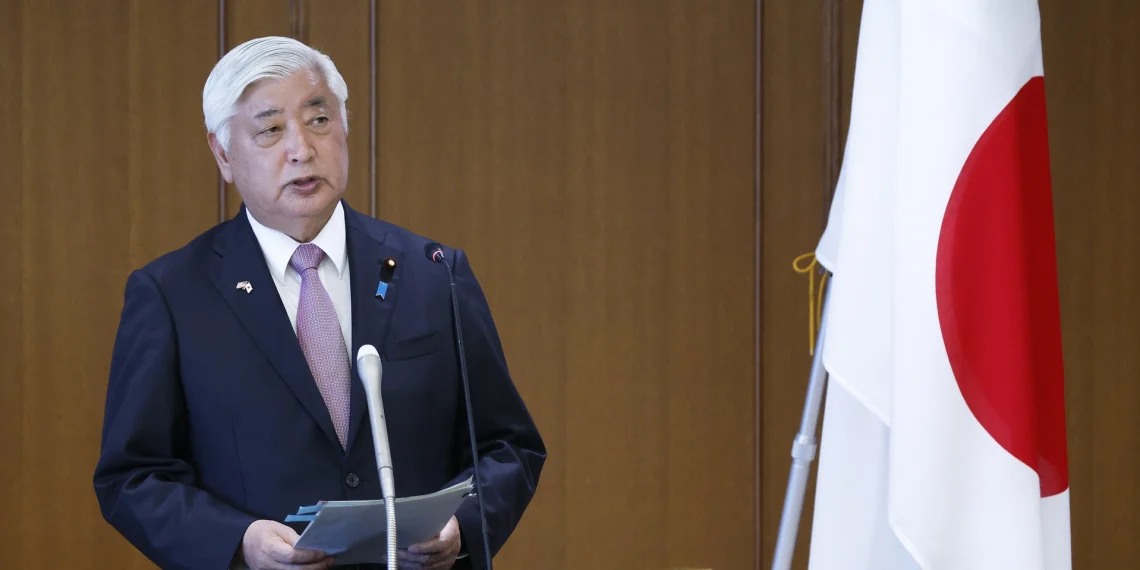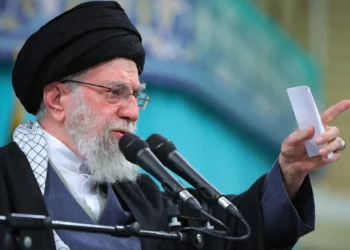TOKYO (Realist English). Japan’s Defense Ministry has described China’s expanding military footprint across the Indo-Pacific as the country’s most pressing strategic threat, citing Beijing’s growing naval presence, increasing joint drills with Russia, and tensions over Taiwan.
In its 2025 annual defense white paper submitted to the Cabinet on Tuesday, the ministry warned that the international order is entering “a new era of crisis,” marked by the sharpest geopolitical upheavals since World War II. The 534-page report underscores deepening concern over escalating U.S.-China rivalry and its impact on regional stability.
“The Indo-Pacific faces concentrated and intensifying security risks, many of which directly affect Japan,” the report said.
One of the report’s central concerns is China’s expanded military operations from Japan’s southwestern approaches into the wider Pacific — including tripled naval passages near the Japanese island of Yonaguni, close to Taiwan, in the last three years. Japan also pointed to Beijing’s recent deployment of two aircraft carriers simultaneously in the Pacific, a first that Tokyo sees as a sign of China’s ambitions to project sea power far from its coasts.
China’s bomber missions using increasingly complex routes and formations are designed to enhance operational readiness and signal strength to regional adversaries, the report concluded. It also referenced multiple incidents of Chinese warships and aircraft entering or skirting Japanese airspace, including violations near Nagasaki and the Nansei island chain.
The report was released just days after Tokyo lodged a formal complaint over repeated instances of Chinese fighter jets approaching Japanese reconnaissance planes in dangerously close proximity. China, in turn, accused Japan of conducting surveillance near its airspace.
Japan’s Defense Ministry highlighted Taiwan as a key flashpoint, noting that Taipei’s recent 10-day live-fire drills reflect heightened concern over a possible Chinese assault. In parallel, Japan is stepping up its own military readiness on its southwestern islands, including test launches of new surface-to-ship missiles and planned deployment of long-range cruise systems.
Russia’s continued military operations near Japanese territory — including an airspace violation last September — were also flagged, particularly in light of Moscow’s expanding military partnership with Beijing. The report called this alliance a “strong concern” for Japan’s national security.
North Korea was labelled “an increasingly serious and imminent threat,” with Tokyo warning of Pyongyang’s advances in nuclear-capable missile technology, including solid-fuel intercontinental ballistic missiles capable of reaching the U.S. mainland and striking Japanese targets.
The report comes amid shifting global power dynamics and what Tokyo sees as a growing burden on U.S. allies to secure regional peace. With President Donald Trump prioritizing American economic and security interests, Japan is under pressure to take greater responsibility for maintaining stability in Asia.
Japan’s unusually blunt language reflects a broader reassessment of its postwar defense posture. Tokyo is signaling both domestic resolve and international alignment with the U.S. and its regional allies as China’s and Russia’s military activism intensifies. The document also reinforces Japan’s concern that Taiwan’s fate is closely tied to its own security — and that any escalation would draw Japan into a broader Indo-Pacific conflict.


















